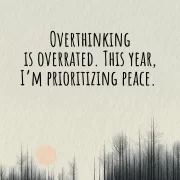
A well-balanced portfolio can withstand a financial crisis and still end up strong in the end.
A healthy portfolio accounts for things like recessions and upswings. That’s why you include stocks for growth and bonds for stability. There are many ways to handle market volatility without damaging your portfolio.
But what about now? In the midst of the coronavirus crisis, we are dealing with a ton of uncertainty and a constant battering of new information. Should you trust that your investments can manage the current climate?
Here are some points to think about right now:
Should I pull my investments out of the market during a financial crisis?
The short answer is “no.” Leave your investments where they are for now.
Again, as long as your portfolio is balanced, the best thing you can do is leave it alone. Timing the market is often a losing game. That’s especially true right now, because the markets are reacting to constant change and unpredictability.
Remember, it’s okay to change your plan for the purpose of surviving this crisis. And there are many other options to consider, other than tapping your investments for money, if you are in a difficult financial situation.
Pulling money from your investments may not be ideal, especially if fees and tax payments are incurred, but some of those have been waived for now.
Should I hold off on contributing to my portfolio?
Don’t put yourself in a financially stressful situation for the purpose of sticking to a plan.
For example, maybe you were on track to max out your 401(k) this year, but your hours were cut at work. Or you were contributing every month to your child’s 529 plan, but you’ve had to cut into your emergency fund to cover costs recently.
In cases like these, it makes sense to put contributions on hold.
However, don’t forget to make a plan later to get back on track. Set some reminders for yourself 6 months from now to resume payments and allocations if you are able to do so.
But if your income hasn’t taken a hit and you have a sufficient emergency fund, you can continue saving and contributing to your accounts as you normally would. Just remember to stay flexible in case anything changes.
Should I invest my emergency fund in the market?
It’s true that when the markets are down during a financial crisis, there could be opportunities for growth. But remember that this is no average economic downturn. This recession came from a forced economic slowdown in response to a health crisis.
And we are still lacking so much information about the long-term effects of COVID-19 on all facets of life.
So reducing your emergency fund or cash reserves for purposes of being opportunistic right now is risky.
One exception is if you have a fully-funded emergency fund and you have “extra” money that came in – maybe from a bonus or a tax refund – you could try dollar cost averaging.
That means you take that money and use it for 3-5 buys over the next 3-5 months (not all at once.) That way you are still making some potentially advantageous investments without putting your cash flow in jeopardy.
About Your Richest Life
At Your Richest Life, Katie Brewer, CFP®, believes everyone should have access to financial resources and coaching. For more information on the services offered, contact Katie today.





